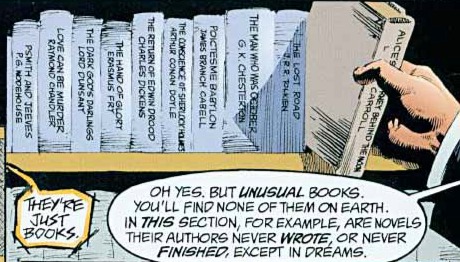
I sometimes wonder what happens to all the unsent messages we compose. We write and communicate all the time, whether we actually type it out or not. As we go through the motions during the day, we write the things we’d like to say in our heads. Whether we’re in the shower or driving to work, we constantly arrange words in our heads in exactly the right order to say exactly what we mean. When we walk away from a heated exchange, we think of the perfect reply an hour later. Occasionally we write these things down and send them. But most of the time, we don’t.
Where do all those thoughts and words go?
In the real world, we probably have files full of them. Digital files, drawers, or folders full of email drafts, iPhone notes, half-empty notebooks, half-written and abandoned cards and postcards. Things we started to write because there was something we needed to say, but which we abandoned because either we ran out of steam or changed our minds. There’s also plenty we don’t write at all. A phrase we hold onto most of the day—something that helps us make sense of a situation. But most of the time, it’s gone the next day and we never recall it.
Our lives are littered with snippets and fragments quietly tucked away.
Or maybe these things were completed. Sometimes thoughts spring out of our heads fully formed into perfect sentences, like Athena from the head of Zeus. They require very little care or revision. We know exactly what they’re meant for. They would have enormous impact if we just let them loose. But for a variety of reasons—fear, cowardice, stubbornness, worry, doubt—we choose not to. We back off of them. We let them wither away in folders or delete them entirely.
> Don’t hit send.
> Pause and cool off.
> Step away from the desk.
> Probably better not.
> Cooler heads should prevail.
> They’d just get the wrong idea.
> These aren’t the right words.
> They might not respond.
> It wouldn’t matter anyway.
> I would prefer not to.
In Neil Gaiman’s The Sandman, there’s a library in the dream world that houses all the books that humans have dreamed but never actually written. Lucien, the librarian of the The Dreaming, works tirelessly to corral all of these manuscripts and file them on bookshelves that seem to go on forever.
The Dead Letter Office is a place where the United States Postal Service stores all the mail that can’t be delivered. The recipient has either moved or died, there’s no valid delivery address, and there’s no return address. So these thoughts and words just hang out there in limbo, undiscovered and unread by their intended readers.

But even in ordinary, everyday life, unfinished letters and undelivered words exist on a massive scale. There’s so much we want to say—and know we need to say—but just don’t.
What would our lives be like if these words actually made it into emails, letters, or texts? What would happen if we sent them and they were read? How much of the course of our life is determined by the words we choose not to say?
Some of these words could save us. They could lead to reconciliation, or forgiveness, or love. They could comfort people. They could open old wounds that could then be properly mended and healed. They could build stronger friendships and relationships. They could make our lives more meaningful.
On the other hand, some of these words could wreck us. They could hurt people. They could open old wounds that would rot and fester. They could do irreparable harm that could alienate us from people completely. They could make our lives more miserable.
There’s no telling what the impact could be, because the whole point of not sending these words is that we don’t have to commit to them and deal with the consequences (for better or for worse).
But what if we went ahead and sent them anyway? What if we told people what we needed to tell them? What if we were willing to take that risk? How different would our lives be if we took a chance, released some of these words into the world, and saw where they took us?




Comments